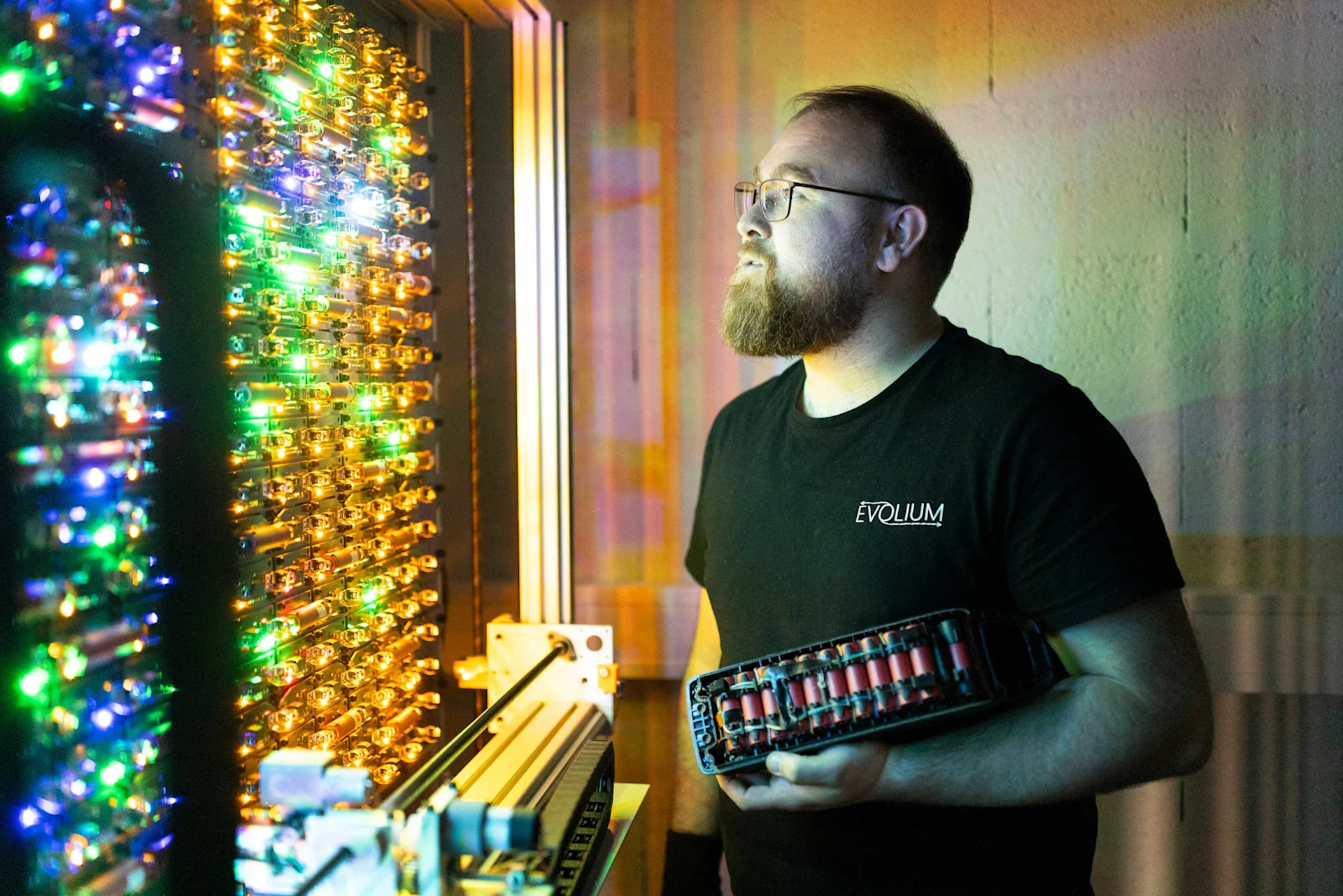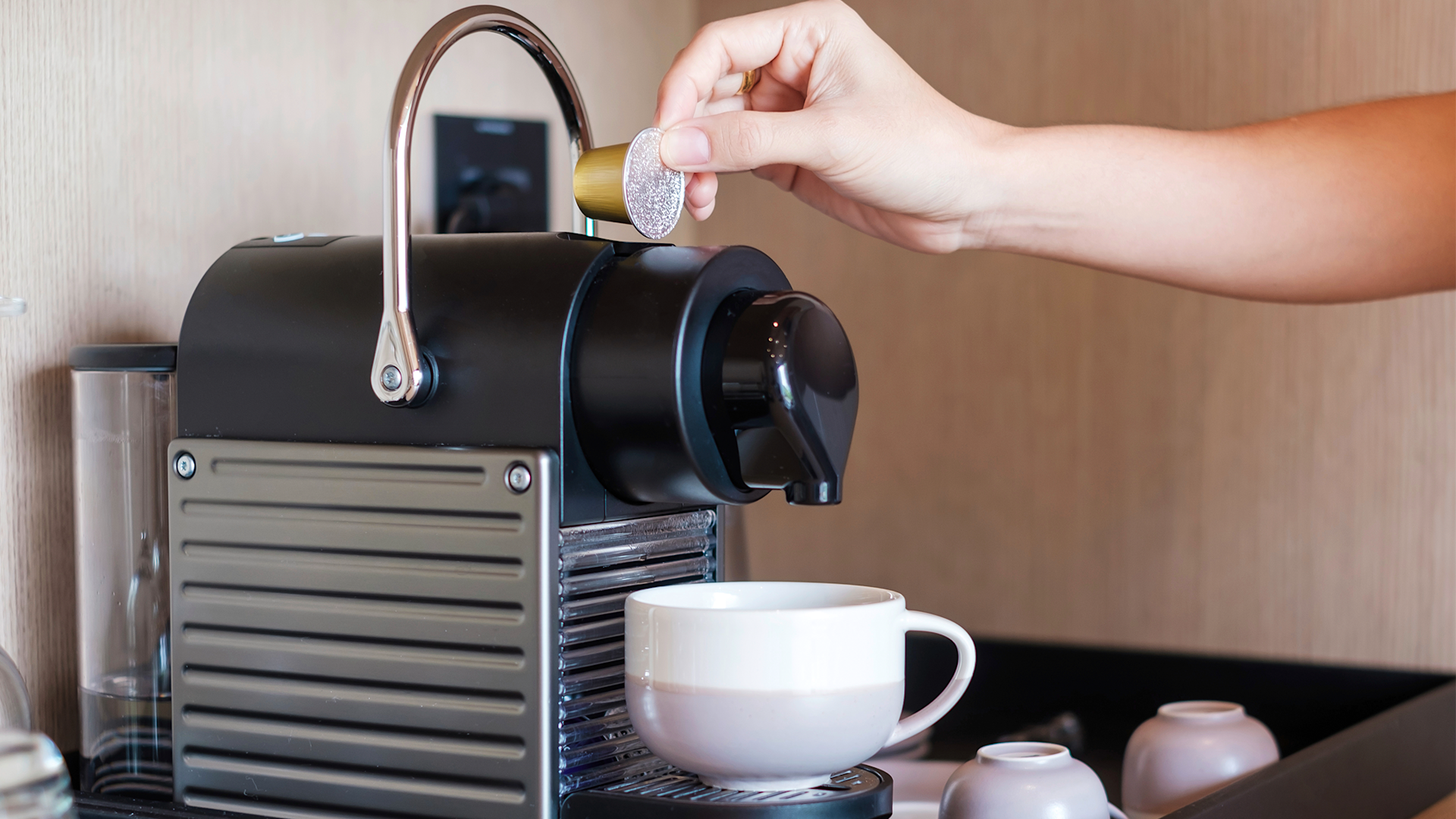
Migros Pioneer Fund
Rechargeable lithium batteries that last longer
With the support of the Migros Pioneer Fund, Evolium Technologies is extending the life of lithium batteries.
navigation

Circular economy
Is the coffee capsule facing extinction? A new EU law plans to ban those made of aluminium and plastic. Yet it is more environmentally friendly than many people think.
Coffee prepared simply, quickly and in consistent quality: that’s exactly what coffee capsules offer. Which is why they have become a permanent fixture in many Swiss households and offices. But now the capsules could be in trouble. A new proposed EU law requires tea and coffee bags to be compostable.
“The increasing use of packaging combined with low reuse and recycling rates hinders the development of a low-carbon circular economy,” writes the responsible European Commission. This would result in over 100,000 tonnes of waste from capsules worldwide.
The fact is: many capsules are disposed of incorrectly and end up in the rubbish. In Switzerland today, only 64 percent are recycled, as the umbrella organisation of Swiss recycling organisations, Swissrecycling, notes.
If the law passes, aluminium and plastic capsules would no longer be allowed. Although Switzerland is not a member of the EU, the law would also have consequences here. Large companies such as Nespresso, a subsidiary of Nestlé, would have to abide by EU rules when exporting.
But coffee capsules are not as bad as their reputation, as a study by the University of Quebec, Canada, published in early 2023 shows. In this study, researchers compared the coffee and water consumption of different preparation methods.
Harvesting and production of coffee cause between 40 and 80 percent of CO2 emissions. Packaging and transport are much less important in comparison. This is because coffee cultivation requires intensive irrigation and fertilisation.
However, organic coffee is responsible for between a third and half as much CO2 as conventional coffee, according to Greenpeace. For sustainable coffee enjoyment, you should therefore use as little powder as possible in the preparation process.
While a cup of filter coffee requires an average of 25 grams of coffee and a French press 17 grams, a capsule contains an average of only 6 grams. Only instant coffee is even better, which requires even less coffee on average.
Despite their aluminium packaging, coffee capsules have a 30 percent lower ecological footprint than portafilter or fully automatic machines. However, the study does note that coffee consumption can double due to the ease of use of the coffee capsules. If that happens, the environmental advantage is gone again.
The new study states that if you want to drink sustainable coffee, you have to recycle coffee capsules correctly. Even better: use reusable and compostable capsules – or no capsules at all, as CoffeeB offers.
CoffeeB’s coffee balls are compostable in the garden and decompose within four weeks. This is because the coffee ball has no capsule; instead, a plant-based protective layer gives it stability.
Do you know what can go in the bin? With our tips and tricks, recycling not only becomes easy, you also save a lot of waste.